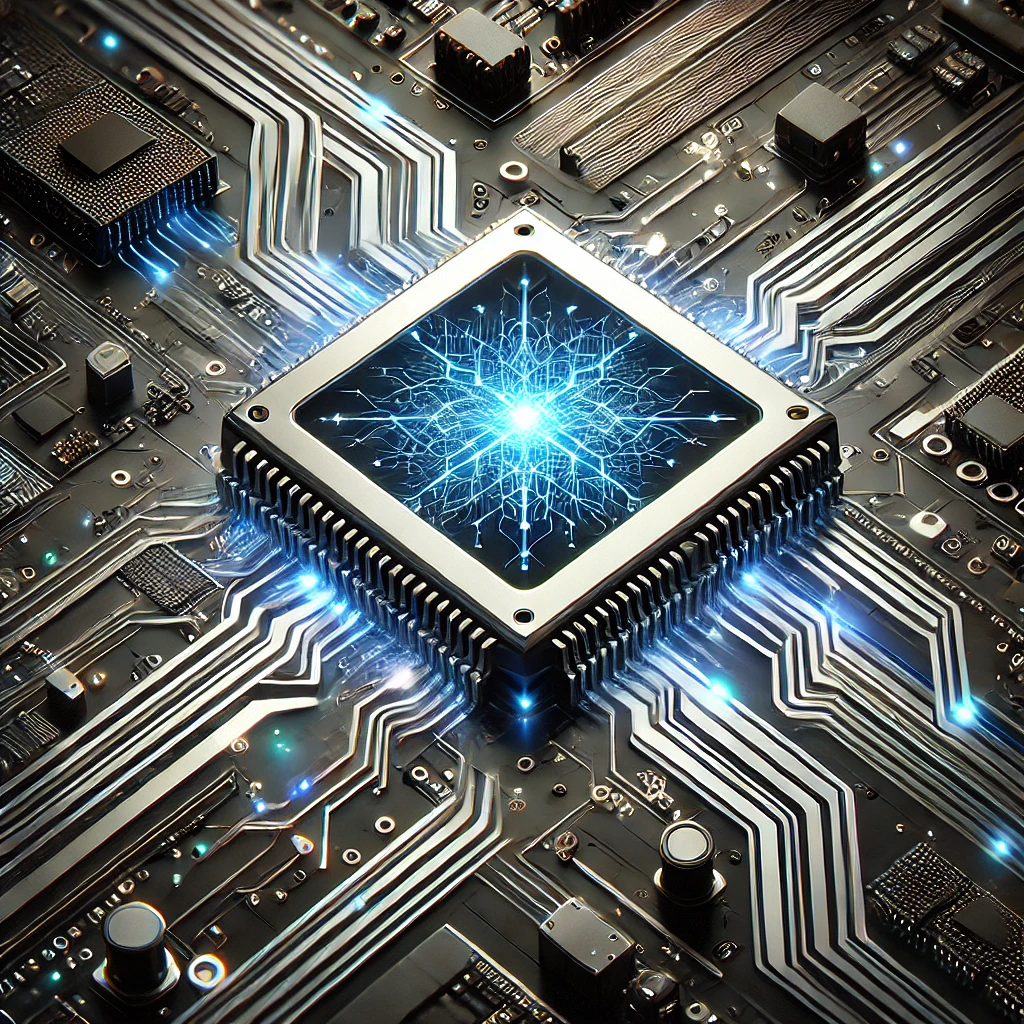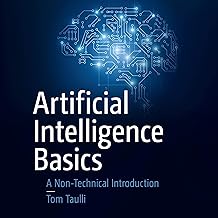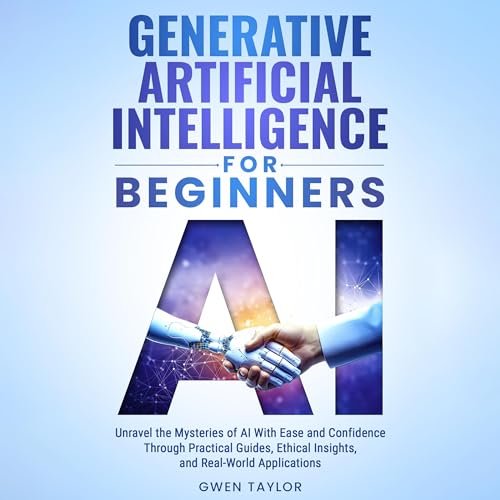Introduction
Artificial Intelligence has rapidly evolved from a niche scientific pursuit to a transformative force shaping our world. AI’s impact extends far beyond robots and smart assistants.
It’s a complex field with profound philosophical and ethical dimensions, each with it’s own ‘-ism.’ These perspectives influence how we develop, apply, and interact with AI technologies.
Understanding these ‘-isms’ is essential for anyone interested in technology, ethics, or the future of humanity. Let’s explore the fascinating world of AI philosophies and their implications for our society.
Articles similar to this one can be found at: https://aiismsforbeginners.com/

Techno-Optimism: The Bright Future of AI
Techno-optimism represents a hopeful outlook on AI’s potential to change our world for the better. Adherents of this philosophy believe AI will usher in an era of unprecedented human prosperity and progress.
Solving Global Challenges
Techno-optimists envision AI tackling some of humanity’s most pressing issues:
Climate Change: AI could optimize energy grids, making clean energy more abundant and affordable. Advanced algorithms might learn new materials for solar panels or batteries, accelerating our transition to sustainable energy sources.
Healthcare: AI-powered medical diagnostics could detect diseases at earlier, more treatable stages. Personalized treatment plans based on genetic data and AI analysis could dramatically improve patient outcomes.
Education: Adaptive learning systems powered by AI could provide tailored education to every student, regardless of their background or learning style.
Economic Prosperity
Techno-optimists argue that AI will drive economic growth by:
- Increasing productivity across industries
- Creating new job categories we haven’t yet imagined
- Freeing humans from repetitive tasks, allowing us to focus on creative and strategic work
Potential Pitfalls
While the techno-optimist vision is appealing, it’s not without critics. Some argue that this perspective might lead to:
- Complacency in addressing current societal issues
- Overlooking potential negative consequences of AI development
- Neglecting the need for human agency in shaping our future
Balancing optimism with responsibility stays a key challenge for proponents of this view.
Seriously, you need this book if you want to understand the full impact of AI and what it means to you now and into the future: https://amzn.to/40yBQSZ

Note: As an Amazon Associate, I may earn a commission from qualifying purchases.
Techno-Skepticism: A Cautionary Approach to AI
Techno-skepticism serves as a counterbalance to the unbridled enthusiasm of techno-optimism. This philosophy emphasizes the need for careful consideration and safeguards in AI development.
Key Concerns
Techno-skeptics raise important questions about the rapid advancement of AI:
Job Displacement: As AI systems become more capable, they may replace human workers in various industries. This could lead to widespread unemployment and economic disruption if not managed carefully.
Privacy and Surveillance: AI-powered systems can process vast amounts of personal data, raising concerns about privacy invasion and mass surveillance.
Concentration of Power: The development of advanced AI requires significant resources, potentially concentrating power in the hands of a few tech giants or governments.
Existential Risk: Some techno-skeptics worry about the potential for AI to surpass human intelligence, raising questions about control and alignment with human values.
Understanding the Basics is essential. See more here: https://amzn.to/41Sv6jP

Note: As an Amazon Associate, I may earn a commission from qualifying purchases.
Real-World Examples
Techno-skeptics point to existing issues as evidence for their concerns:
- AI systems perpetuating biases in hiring processes
- Facial recognition technology being used for mass surveillance
- Social media algorithms amplifying misinformation and polarization
The Role of Skepticism
Techno-skepticism plays a crucial role in AI development by:
- Encouraging the implementation of safeguards and ethical guidelines
- Promoting public discourse on the societal impacts of AI
- Pushing for transparency and accountability in AI systems
Transhumanism: Enhancing Humanity Through AI
Transhumanism represents a more radical vision for the future of AI and humanity. This philosophy sees AI not just as a tool, but as a means to enhance and transcend human biological limitations.
The Transhumanist Vision
Transhumanists envision a future where:
- Neural implants boost cognitive abilities, enhancing memory and processing speed
- Brain-computer interfaces allow direct mental control of devices and instant skill acquisition
- Nanotechnology and AI work together to repair cellular damage, potentially extending human lifespans indefinitely
Ethical Considerations
The transhumanist vision raises profound ethical questions:
Inequality: Would enhanced humans create a new form of inequality, dividing society between the augmented and non-augmented?
Identity: How would cognitive enhancements affect our sense of self and personal identity?
Human Nature: At what point do enhancements fundamentally change what it means to be human?
Transhumanism in Practice
While many transhumanist ideas remain speculative, some early steps in this direction include:
- Cochlear implants restoring hearing
- Prosthetic limbs controlled by neural interfaces
- Experimental brain implants treating conditions like depression and Parkinson’s disease
Transhumanism challenges us to consider the long-term implications of merging human biology with artificial intelligence.
Posthumanism: Redefining Intelligence and Consciousness
Posthumanism takes the ideas of transhumanism even further, challenging basic notions of human exceptionalism and our place in the world.
This book serves as a ‘starting point’ in AI learning: https://amzn.to/3W3RMJZ

Note: As an Amazon Associate, I may earn a commission from qualifying purchases.
Key Concepts
Posthumanist philosophy argues that:
- Intelligence and consciousness may not be uniquely human traits
- As AI becomes more advanced, we need to reconsider our ethical frameworks
- The boundaries between human, animal, and machine may become increasingly blurred
Implications for AI Development
Posthumanism influences AI research and development by:
- Encouraging exploration of choice forms of intelligence
- Promoting consideration of the rights and moral status of artificial entities
- Challenging anthropocentric biases in AI design
Philosophical Challenges
Posthumanism forces us to grapple with profound questions:
- How do we define consciousness, and could an AI system possess it?
- If an AI system achieves human-level intelligence, what rights should it have?
- How might our understanding of ethics and morality need to evolve in a posthuman world?
While these ideas may seem abstract, they become increasingly relevant as AI systems grow more sophisticated.
There are aspects to know about AI. Details here: https://amzn.to/4fAUpdr

Note: As an Amazon Associate, I may earn a commission from qualifying purchases.
AI Ethics: Navigating the Moral Landscape
As AI becomes more integrated into our lives, the field of AI ethics has emerged as a crucial area of study and practice.
Core Principles
AI ethics focuses on ensuring that AI systems are developed and deployed in ways that are:
- Fair and unbiased
- Transparent and explainable
- Privacy-preserving
- Accountable
- Beneficial to humanity
Real-World Challenges
AI ethics grapples with complex real-world scenarios:
Criminal Justice: How can we confirm AI systems used in sentencing or predictive policing don’t perpetuate racial biases?
Autonomous Vehicles: How should self-driving cars be programmed to make ethical decisions in potential accident scenarios?
Healthcare: How do we balance the benefits of AI in medical diagnosis with patient privacy concerns?
The Role of AI Ethics
AI ethics serves several crucial functions:
- Guiding the development of AI systems that align with human values
- Informing policy and regulation around AI technologies
- Educating the public about the ethical implications of AI
As AI becomes more powerful and hidden, the importance of AI ethics will only grow.
The AI Alignment Problem: Ensuring Beneficial AI
AI alignment refers to the challenge of ensuring that artificial intelligence systems, especially highly advanced ones, behave in ways that are useful to humanity.
The Core Challenge
The alignment problem stems from several factors:
- The difficulty of precisely specifying human values and goals
- The potential for unintended consequences in complex AI systems
- The possibility of an advanced AI system pursuing goals that are indifferent or harmful to human welfare
Approaches to Alignment
Researchers are exploring various approaches to AI alignment:
Value Learning: Developing methods for AI systems to learn human values through observation and interaction
Inverse Reinforcement Learning: Inferring the underlying goals or rewards that motivate human behavior
Corrigibility: Ensuring that AI systems remain open to correction and modification by humans
The Stakes of Alignment
Solving the alignment problem is crucial because:
- It addresses existential risks associated with advanced AI
- It helps confirm that AI development benefits humanity as a whole
- It’s necessary for building public trust in AI systems
The alignment problem stays one of the most significant challenges in AI development.
Integrating AI Philosophies: A Balanced Approach
As we navigate the complex landscape of AI philosophies, it’s important to recognize that these ‘-isms’ aren’t mutually exclusive. Many people hold a mix of these views, and perspectives often evolve as technology advances.
Finding Common Ground
Despite their differences, most AI philosophies share some common goals:
- Harnessing the potential of AI to solve global challenges
- Ensuring that AI development benefits humanity as a whole
- Addressing potential risks and ethical concerns associated with AI
The Importance of Diverse Perspectives
Embracing a range of AI philosophies offers several benefits:
- It encourages more nuanced and comprehensive discussions about AI
- It helps identify potential blind spots or unintended consequences
- It promotes the development of AI systems that align with diverse human values
Practical Implications
Understanding these different perspectives can tell:
- AI research and development priorities
- Policy and regulation around AI technologies
- Public discourse and education about AI
By considering many viewpoints, we can work towards a future where AI enhances human flourishing while reducing potential risks.
The Role of Public Engagement in Shaping AI’s Future
As AI technologies continue to advance, public engagement and understanding become increasingly important.
Why Public Engagement Matters
Broad participation in discussions about AI is crucial because:
- AI will impact virtually every aspect of society
- Ethical decisions about AI development should reflect diverse perspectives
- Public trust is essential for the successful integration of AI technologies
Strategies for Engagement
Effective public engagement in AI discussions can take many forms:
- Educational initiatives to improve AI literacy
- Public forums and debates on AI ethics and policy
- Citizen participation in AI research and development projects
- Transparent communication about AI capabilities and limitations
Challenges to Overcome
Meaningful public engagement in AI faces several obstacles:
- The technical complexity of AI systems
- Rapid pace of technological change
- Potential disconnect between AI researchers and the general public
Overcoming these challenges is essential for ensuring that AI development aligns with societal values and needs.
Frequently Asked Questions
What is artificial intelligence?
Artificial Intelligence refers to computer systems designed to perform tasks that typically require human intelligence, such as visual perception, speech recognition, decision-making, and language translation.
How is AI different from machine learning?
Machine learning is a subset of AI that focuses on the development of algorithms and statistical models that enable computer systems to improve their performance on a specific task through experience.
Can AI become conscious?
The question of AI consciousness is a complex philosophical and scientific issue. Currently, there’s no scientific consensus on whether artificial systems can develop consciousness comparable to human experience.
Will AI take over human jobs?
AI is likely to automate certain tasks and change the nature of many jobs. While some jobs may be displaced, AI is also expected to create new job categories and increase productivity in many industries.
What are the main ethical concerns surrounding AI?
Key ethical concerns include bias and fairness in AI systems, privacy and data protection, transparency and explainability of AI decision-making, and the potential for AI to be used in harmful or manipulative ways.
How can we confirm AI stays useful to humanity?
Ensuring useful AI involves a combination of technical approaches (like AI alignment research), ethical guidelines, policy and regulation, and ongoing public discourse about the goals and values we want AI systems to embody.
What is the singularity in AI?
The technological singularity refers to a hypothetical future point when artificial intelligence surpasses human intelligence, potentially leading to rapid and unpredictable technological growth.
How does AI impact privacy?
AI systems often require large amounts of data to function effectively, raising concerns about data collection, storage, and use. AI can also enable more sophisticated forms of surveillance and data analysis.
Can AI be creative?
AI systems have demonstrated the ability to generate novel content in areas like art, music, and writing. However, the nature of AI creativity and how it compares to human creativity stays a topic of debate.
What is the role of government in regulating AI?
Governments play a crucial role in developing policies and regulations to confirm the responsible development and deployment of AI technologies, balancing innovation with public safety and ethical considerations.
Key Takeaways
- AI philosophies range from optimistic to cautious, each offering valuable perspectives on the future of artificial intelligence.
- Transhumanism and posthumanism challenge our notions of human nature and our relationship with technology.
- AI ethics and alignment are crucial for ensuring AI development benefits humanity and aligns with human values.
- Understanding these ‘-isms’ enables more informed discussions and decision-making about AI’s future.
- Public engagement and diverse perspectives are essential for shaping the development of AI in ways that benefit society as a whole.
A great cost-saving tool you need can be found at: https://galaxy.ai/?ref=gary
This post contains links. If you click on these links and make a purchase, I may earn a commission at no additional cost to you. Rest assured, I only recommend products or services I believe will add value to my readers. As an Amazon Associate, I may earn a commission from qualifying purchases.
Other articles similar to this one can be found at: https://aiismsforbeginners.com/




Leave a Reply